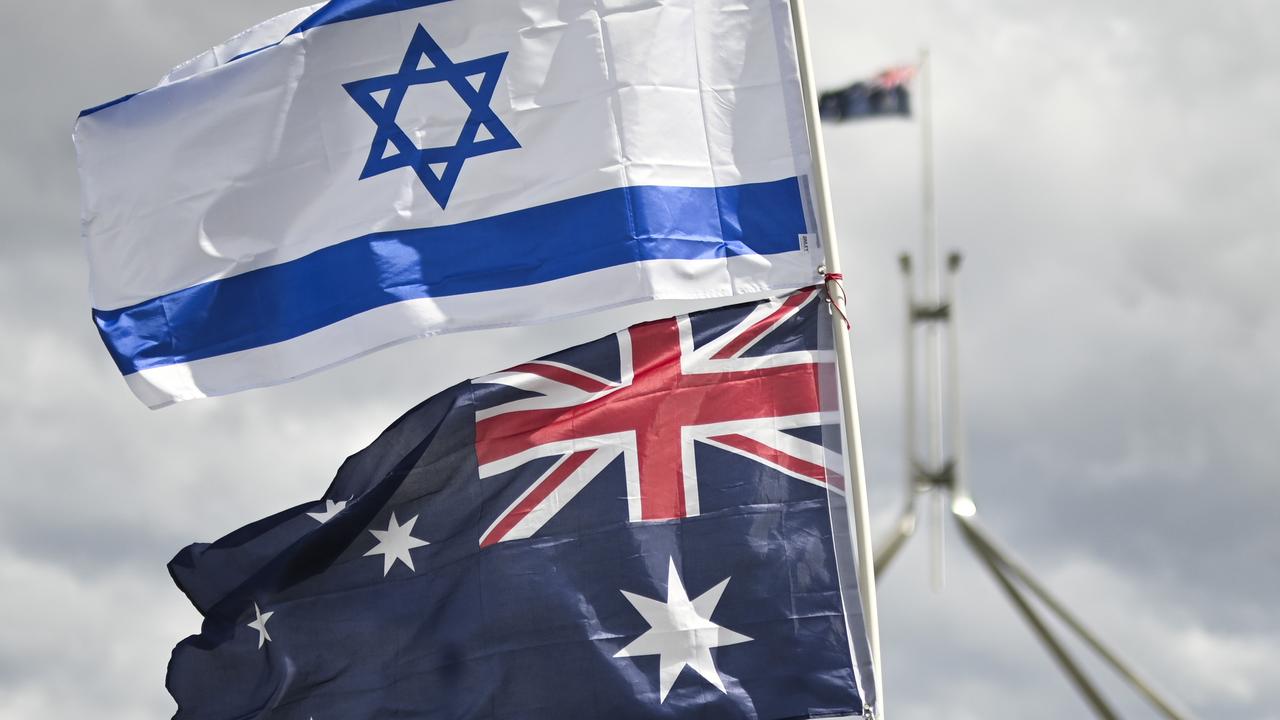Female human rights activist faces beheading for taking part in anti-government protests
WHEN Saudi Arabia’s young Prince was appointed Deputy PM, it seemed change was afoot. But disturbing news is changing opinion.
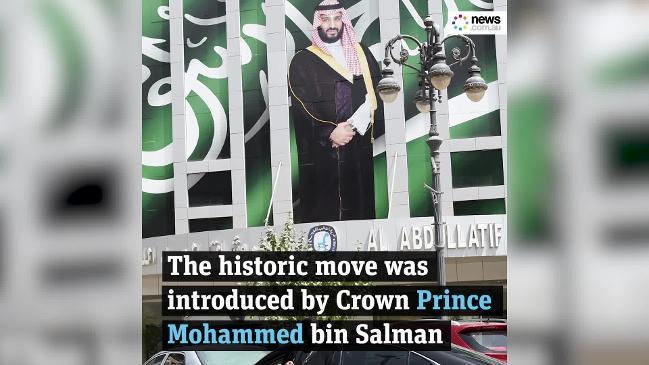
WHEN savvy and ambitious Crown Prince Mohammed bin Salman was appointed First Deputy Prime Minister of Saudi Arabia in June last year, it appeared the sands were starting to shift.
Maybe the kingdom was beginning to soften its ultraconservative and hard-line culture.
Months after Crown Prince Mohammed took steps to bring the ancient Middle Eastern kingdom more in line with the modern world, it appears to have gone backwards again.
Right now, a political prisoner and human rights activist is facing the very real and very grim prospect of death by beheading. What for? Participating in protests, “chanting slogans hostile to the regime” and filming protests for social media.
Israa al-Ghomgham was arrested and thrown into a prison cell on the Arabian gulf where she has languished for almost three years.
During that time, the 29-year-old and her five co-accused, who face a raft of charges after taking part in peaceful anti-government protests, have been refused access to a lawyer.
This week, at Saudi Arabia’s counter-terror court in Riyadh where the group is due to stand trial, prosecutors called for a brutal punishment — execution by beheading — in a case that has outraged human rights groups worldwide.
Ms al-Ghomgham is now the first woman to ever face the death penalty for taking part in a protest.
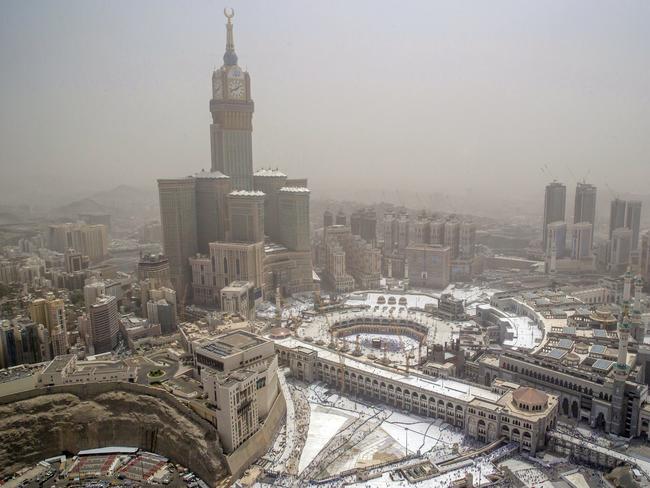
A PR BLITZ, BUT WHAT FOR?
In January, Middle East specialist Anthony Bubalo, a former Saudi diplomat and deputy director and research director of the Lowy Institute, told news.com.au the Crown Prince had made clear his intention to modernise the country.
With a large population of Saudis being under the age of 30, Crown Prince Mohammed had a strong desire to shake up the ancient Middle Eastern kingdom and bring it more in line with the modern world.
When he got into power, Crown Prince Mohammed — who is next in line once his father King Salman vacates the throne — undertook a ruthless purge of his rivals as part of an “anti-corruption” campaign.
Hundreds of Saudi Arabia’s political and business elite were detained at the Ritz Carlton hotel in Riyadh, including 11 members of the royal family, ministers and wealthy tycoons who were accused of a series of crimes including corruption and taking bribes.
The government reportedly seized more than $100 billion as part of the crackdown.
Since then, it seems the Crown Prince has been going on a public relations blitz, appearing to reach out to Western nations and spin some positive PR.
Photos of Crown Prince Mohammed pictured at the World Cup alongside Russian President Vladmir Putin, at Buckingham Palace with the Queen, meeting US President Donald Trump and British Prime Minister Theresa May started to spring up in our news feeds.
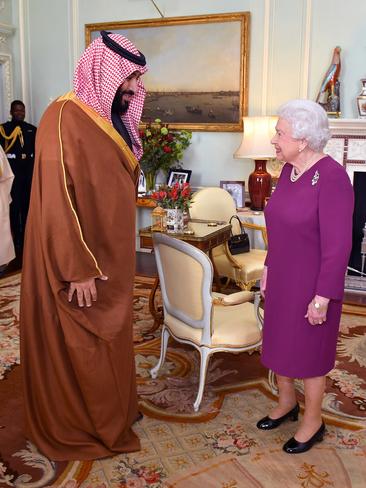
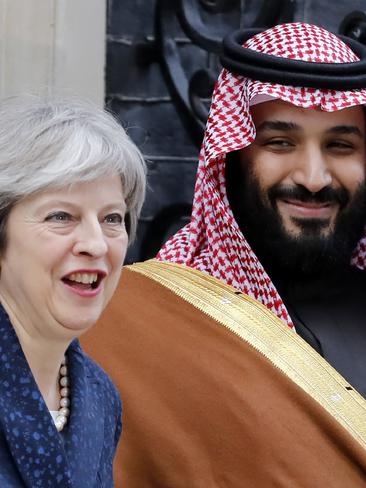
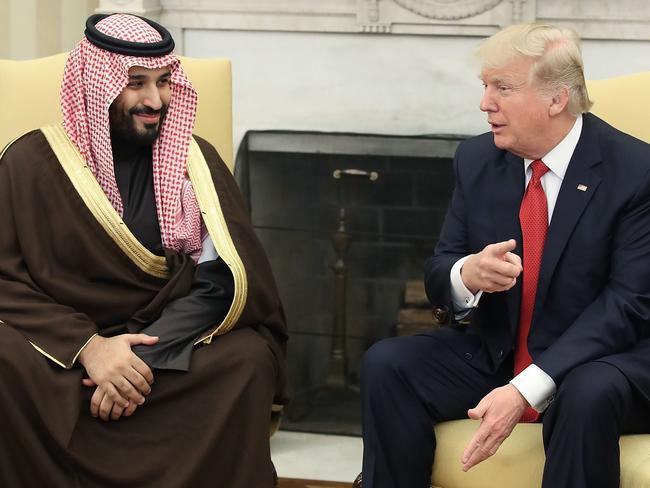
At home, he made great strides to modernise the kingdom.
“He thinks the kingdom needs to change quickly,” Mr Bubalo told news.com.au earlier this year. “He knows Saudis aren’t going to be able to rely economically on the huge incomes they once earned from oil.
“Oil continues to be an enormous source of income, but the general view is prices won’t return to the heady days a decade ago of $100 a barrel.”
Earlier this year, we saw photos of Saudi women celebrating the government’s decision that would allow them to drive. Women were suddenly allowed to attend sports matches and the kingdom’s first cinema in 35 years opened in Riyadh on April 18.
Did these developments mean that finally Saudi Arabia was turning a corner? It was a certainly far cry from 2011, when activist Manal al-Sharif was jailed for the crime of “driving while female”.
Sadly, it appears the answer to that is no and it would not be out of place to suggest that these gestures may have been made to change Saudi’s reputation in the eyes of the world while really, little has changed.
Human Rights Watch said Saudi Arabia’s Specialised Criminal Court, which was set up in 2008 to try terrorism cases, had been increasingly used to prosecute peaceful dissidents and was notorious for its violations of fair trial standards.
FEMALE HUMAN RIGHTS ACTIVIST FACES BEHEADING
Human Rights Watch says Ms al-Ghomgham’s charges do not resemble recognisable crimes.
As well as being charged with participating in protests and filming them, she was accused of forgery for using the passport photo of another woman on her Facebook account and “providing moral support to rioters” — which amounted to attending funerals of protesters killed during clashes with security forces.
The Public Prosecution called for the execution of five of the six based on the Islamic law principle of ta’zir, in which the judge has discretion over the definition of what constitutes a crime as well as the sentence.
The Saudi Arabian government might behead Israa al-Ghomgham, who has been in prison for 3 years for allegedly organizing an anti-discrimination protest. She would be the first woman activist to face the death penalty in the country. pic.twitter.com/bSSINbjDE5
— NowThis (@nowthisnews) August 22, 2018
Samah Hadid, Amnesty International’s Middle East director of campaigns, described the method of execution as the “most appalling possible punishment” and said it set a dangerous precedent for other women currently locked up in Saudi jails for similar “crimes”.
“We are urging the Saudi Arabian authorities to drop these plans immediately,” Ms Hadid said. “Sentencing Israa al-Ghomgham to death would send a horrifying message that other activists could be targeted in the same way for their peaceful protest and human rights activism.”
‘POLITICALLY MOTIVATED’ CHARGES
She said charges against Ms al-Ghomgham, including participating in and inciting protests, chanting slogans hostile to the regime and attempting to inflame public opinion, were “absurd and clearly politically motivated to silence dissent” in the country’s oil-rich Eastern Province.
“Saudi Arabia is one of the world’s most prolific executioners and the world cannot continue to ignore the country’s horrific human rights record,” Ms Hadid said.
“We call on the international community to put pressure on the Saudi Arabian authorities to end the use of the death penalty, which continues to be employed in violation of international human rights law and standards, often after grossly unfair and politically motivated trials.”
Ms al-Ghomgham and her husband Moussa al-Hashem were arrested during a raid on their home on December 6, 2015, for their part in political protests in the eastern Qatif province in the aftermath of the Arab Spring.

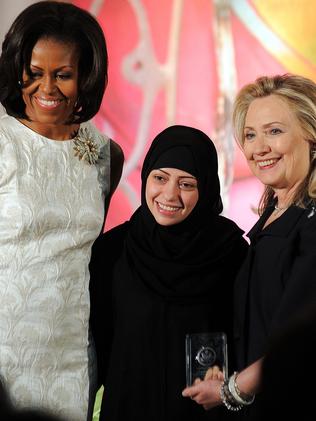

The Shia activist had become well-known for taking part in political demonstrations in the Eastern Province and documenting them — namely filming and uploading videos on social media platforms, a practice she had been actively involved in since 2011.
Her main platform, according to Human Rights Watch, was calling for an end to the notoriously conservative Islamic and majority-Sunni Muslim country’s “systematic discrimination” against Shia Muslims.
Sarah Leah Whitson, Middle East director at Human Rights Watch, said Ms al-Ghomgham and her co-accused had been held in pre-trial detention and without legal representation for over two years. Their next court date has been scheduled for October 28.
“Any execution is appalling, but seeking the death penalty for activists like Israa al-Ghomgham, who are not even accused of violent behaviour, is monstrous,” she said.
“Every day, the Saudi monarchy’s unrestrained despotism makes it harder for its public relations teams to spin the fairytale of ‘reform’ to allies and international business.”
CRACKDOWN ON ACTIVISTS
Human Rights Watch said a recent crackdown on women’s rights activists had led to the arrest of at least 13 women under the pretext of maintaining national security. Some had since been released while others remain detained without charge and had been branded as “traitors” by the media. They face up to 20 years in prison for their activism.
In May, Saudi blogger Eman al-Nafjan was detained along with six other women’s rights activists and in early August. Amal al-Harbi — the wife of jailed Saudi Civil and Political Rights Association founding member Fawzan al-Harbi — was also detained. The reason for Ms al-Harbi’s arrest is unknown.
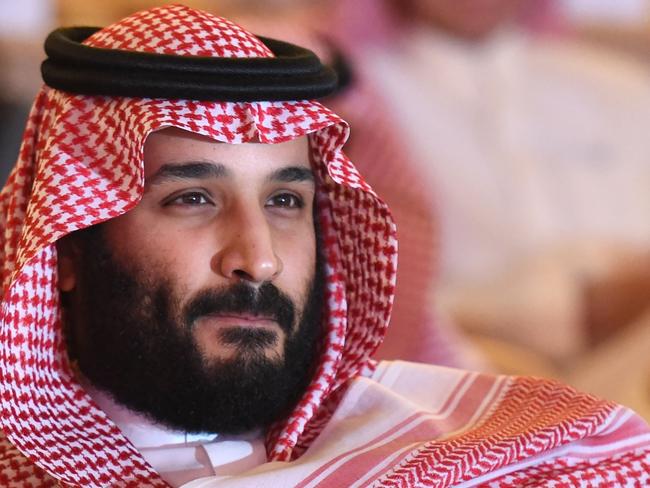
This month, two more prominent female human rights activists Samar Badawi — sister of jailed blogger Raif Badawi — and Nassima al-Sada were arrested and thrown in jail, which according to Amnesty International, was “proof of a crackdown that shows no sign of relenting”.
It was a far cry from six years ago when Ms Badawi was celebrated for her activism with the 2012 International Women of Courage Award, presented to her by former First Lady Michelle Obama and former Secretary of State Hillary Clinton during a ceremony in Washington D.C.
Amnesty International said the women had been “repeatedly targeted, harassed and placed under travel bans for their human rights activism” and called for their immediate and unconditional release.
“This unprecedented level of persecution of human rights defenders in Saudi Arabia is a disturbing sign that the crackdown is far from over,” said Lynn Maalouf, Amnesty International’s Middle East research director.
“These brave women represented the last vestiges of the human rights community in the country and now they too have been detained. Saudi Arabia’s new leadership under Crown Prince Mohammed bin Salman has crushed any space for the existence of human rights defenders in the country.
“Despite the Saudi authorities’ repeated attempts to project the image of a country implementing sweeping reforms to ‘modernise’ the kingdom, the grim reality is of continuing arrests of activists for their peaceful human rights work,” she said.
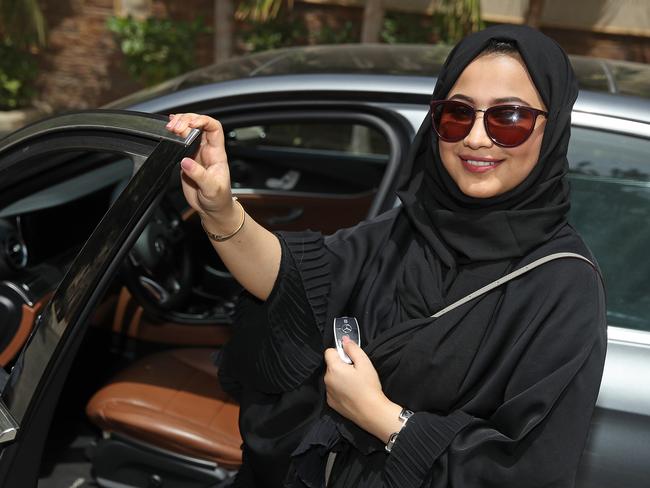
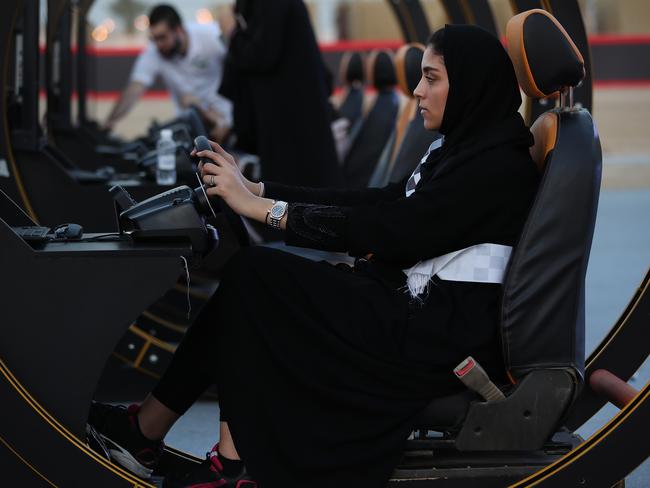
To Western observers, criticising the Saudi Government may seem like you have a death wish. Few will forget the case of Raif Badawi who was sentenced to 1000 lashes and is currently serving a 10-year jail term for “insulting Islam through electronic channels”, namely a blog called Free Saudi Liberals.
Saudi Arabia has a notoriously bad record on human rights — particularly when it comes to certain nationalities, religious tolerance and the treatment of women.
“If the Crown Prince is truly serious about reform, he should immediately step in to ensure no activist is unjustly detained for his or her human rights work,” Ms Whitson, of Human Rights Watch, said.
Lynn Maalouf, Amnesty International’s Middle East research director, has called on the international community to step in and use diplomatic means to push for the activists’ release.
“The international community must push Saudi Arabian authorities to end this draconian crackdown and targeted repression of human rights activists in the country,” she said.
“States such as the USA, UK or France, which can use their leverage with Saudi Arabia, have remained silent for far too long. Their silence is deafening.”
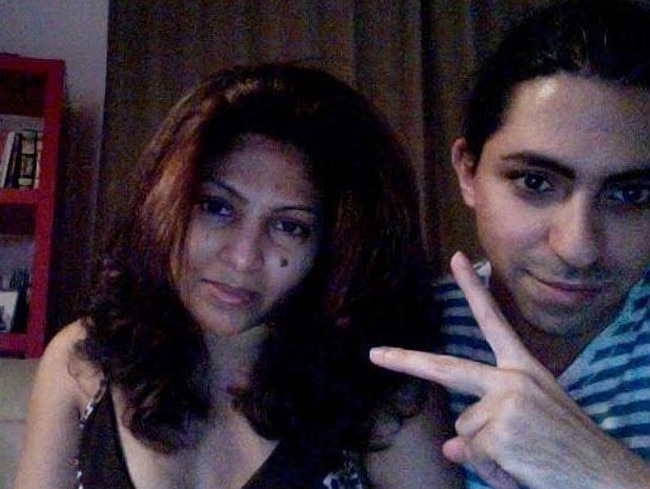
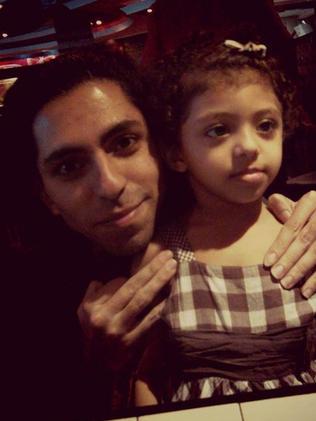
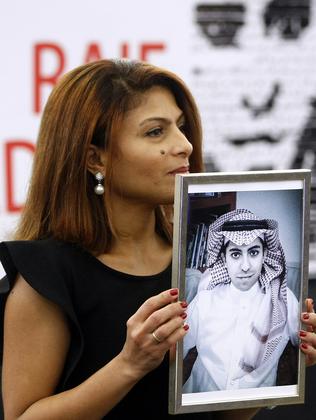
— Continue the conversation with Rebecca Franks on Twitter @MrsBecFranks


